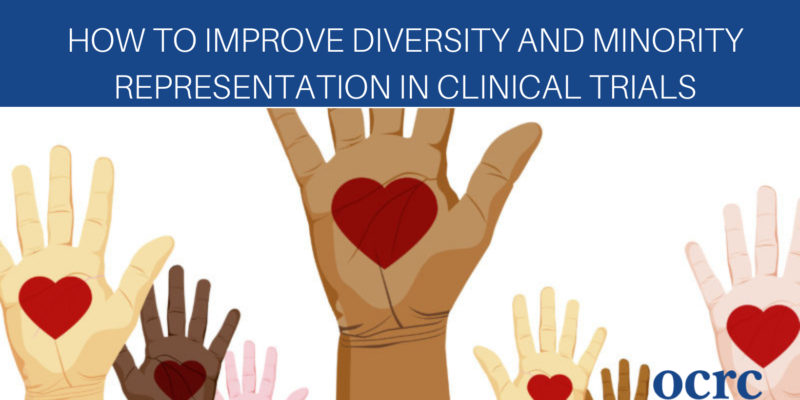
All experimental medications and therapies go through the clinical research process, and minority representation in clinical trials is paramount to the effectiveness of these innovative treatments in the general public. A prime example of this is the need for minority participation in groundbreaking COVID-19 vaccine research. According to a recent article in the Washington Post on July 27, 2020, “Interest in these trials is surging in the pandemic, but researchers said it would be essential for volunteers to include those who are most at risk of severe consequences of COVID-19, including Black, Hispanic, Native American and older people.”
Clinical researchers place a great deal of emphasis on diversity. This is mainly because study data should represent the population as a whole. Unfortunately, most studies fail to reach recruitment targets and minorities are rarely represented accurately in U.S. clinical research. Read on to understand the reasons for this disparity.
Already, only about 10% of Americans are participating in clinical trials. Less than 10% of those participants are minorities, according to the National Institute of Health and Health Disparities.
Studies show that some populations are affected by diseases and medications differently due to physiological and metabolic differences. As pointed out by Jamie Brewer, MD, of the FDA Office of Oncology and Hematology, enrolling only white patients in a clinical study only evaluates the drug’s safety and efficacy in white patients. If minorities continue to remain underrepresented in clinical research, they may be at a higher risk of certain diseases.
So, why is there such a lack of representation in clinical trials? For participants in general, Forte Research suspects that this is due to a lack of public appreciation, a desire to keep health issues private, and a lack of immediately visible results, which ultimately leads to a loss of interest. For minorities specifically, there may be some more reasons: lack of awareness; lack of recruiting efforts; misconceptions and fear of exploitation; financial hurdles; logistical challenges, and a general distrust of the medical community.
Some organizations have begun implementing programs designed to specifically address these issues. For example, Johns Hopkins University has developed a patient navigation program called EMPaCT (Enhancing Minority Participation in Clinical Trials), with sites at located in universities throughout the country with minority populations who could benefit from clinical research participation. Yale has implemented a program called OWN-IT (Oncologists Welcome New Haven Into Trials), which promotes community involvement by engaging with the community and helping minorities feel more comfortable with the medical community.
The FDA Office of Minority Health and Health Equity (OMHHE) strives to promote health equity for all, with the protection and promotion of diverse populations’ health by addressing health disparities (diseases that occur more frequently/appear differently in certain populations). As mentioned on their website, they aim to:
By participating in clinical trials, you are helping your community. Learn more about the importance of representation by checking out this brochure from OMHHE.
Study participants of all ethnicities, ages, and backgrounds have the opportunity to play a unique and essential role in the creation of potentially life-saving therapies. If you are interested in participating in a clinical trial, read this post on how to find clinical trials in your area. You can also ask your doctor for clinical trial recommendations. Remember, you can check for any enrolling studies at community hospitals or universities in your area.
Additionally, you are welcome to contact us to learn more about participating in our current clinical studies in the Orlando area.
